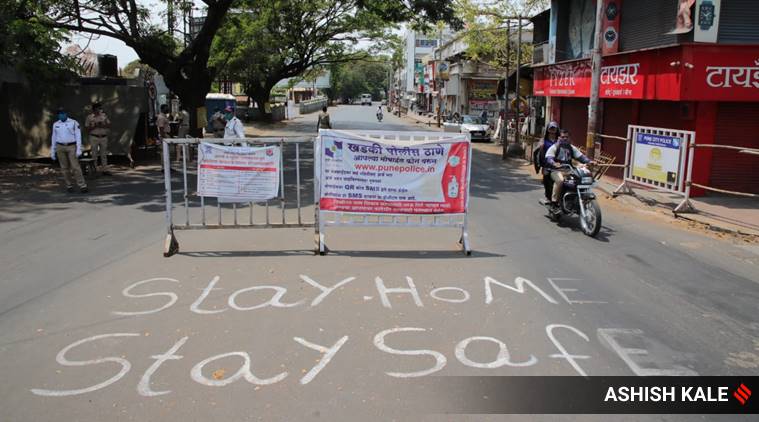 Malegaon has seen 94 cases so far and nine persons from the city have died due to COVID-19, according to state health authorities.
Malegaon has seen 94 cases so far and nine persons from the city have died due to COVID-19, according to state health authorities.
The parents of a 22-year-old Malegaon resident, who died of coronavirus-related issues, are still in shock. From a quarantine facility in Malegaon, her father told The Indian Express, “Bacchi ka gam leke quarantine main abhi tak hain. Kabristan tak nahi jaa sake” (We are grieving at the quarantine facility, we could not even go to the burial ground).
The woman, from Malegaon’s Nayapura, also suffered from severe anaemia and had cardiac issues. Her father is not sure whether he has the infection. “I work in a power loom and my wife is a housewife. Our daughter had cough and fever and when local treatment did not help, we decided to take her to the government medical college at Dhule. It was very difficult due to the lockdown and we had to leave early in the morning. She had just completed her BSc and wanted to pursue post-graduate studies,” he said.
Malegaon has seen 94 cases so far and nine persons from the city have died due to COVID-19, according to state health authorities.
In a congested city like Malegaon, where many families live in small spaces, “the concepts of physical and social distancing are practically impossible,” said Pankaj Ashiya, an IAS officer who has been appointed as the special monitoring officer. Ashiya, who is in charge of the Malegaon Emergency Operation Centre, told The Indian Express, “In some cases, as many as 20-25 people stay together in one house and it is very difficult to ensure social distancing. Still, we are mobilising efforts and telling people to wear masks,” he said.
While COVID-19 patients are being hospitalised, those with suspected symptoms of the infection have been sent to institutional quarantine facilities, Malegaon Municipal Corporation’s health officer Sapna Thakre told The Indian Express.
From Thursday, fever clinics will be set up within containment zones of the city, and a house-to-house survey will be undertaken to identify people with symptoms of COVID-19. “We are also keeping a strong check on the sale of medicines and getting data as to which person has purchased medicines to treat the flu. This will help us in active surveillance and tracking suspected cases. Contact tracing is crucial at this point and along with house-to-house surveys, our teams will try to identify high-risk and low-risk persons,” said Ashiya.
“We are talking to religious leaders and asking them to talk to people in their communities to practice social distancing and hand hygiene,” said Ashiya.
He added, “Initially, 30 to 40 samples were being tested and that will be increased to 200 samples daily. While the samples are being sent to the government medical college at Dhule, lab facilities will also be made functional at Nashik”.